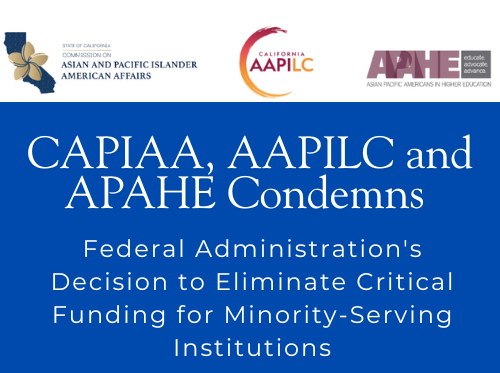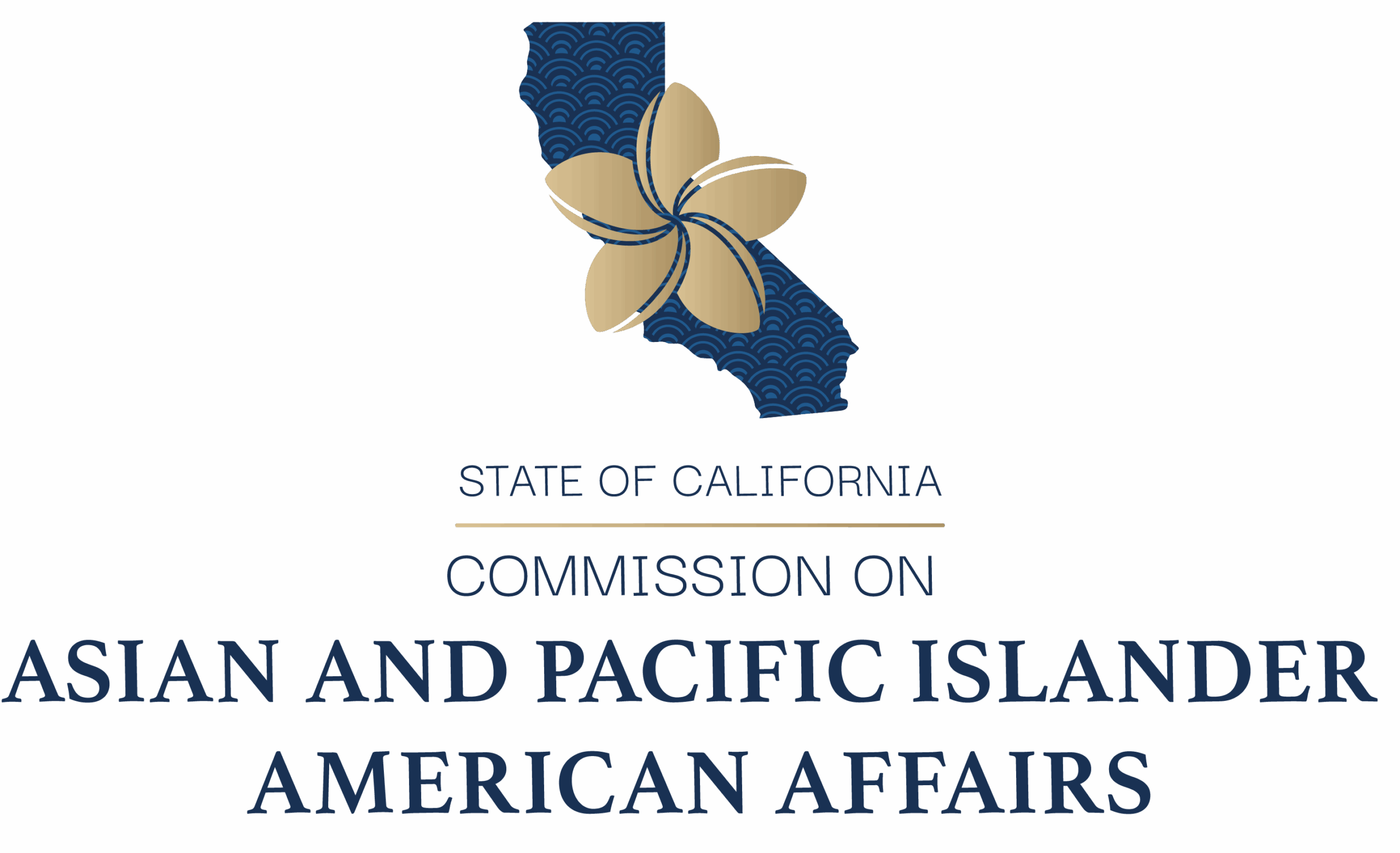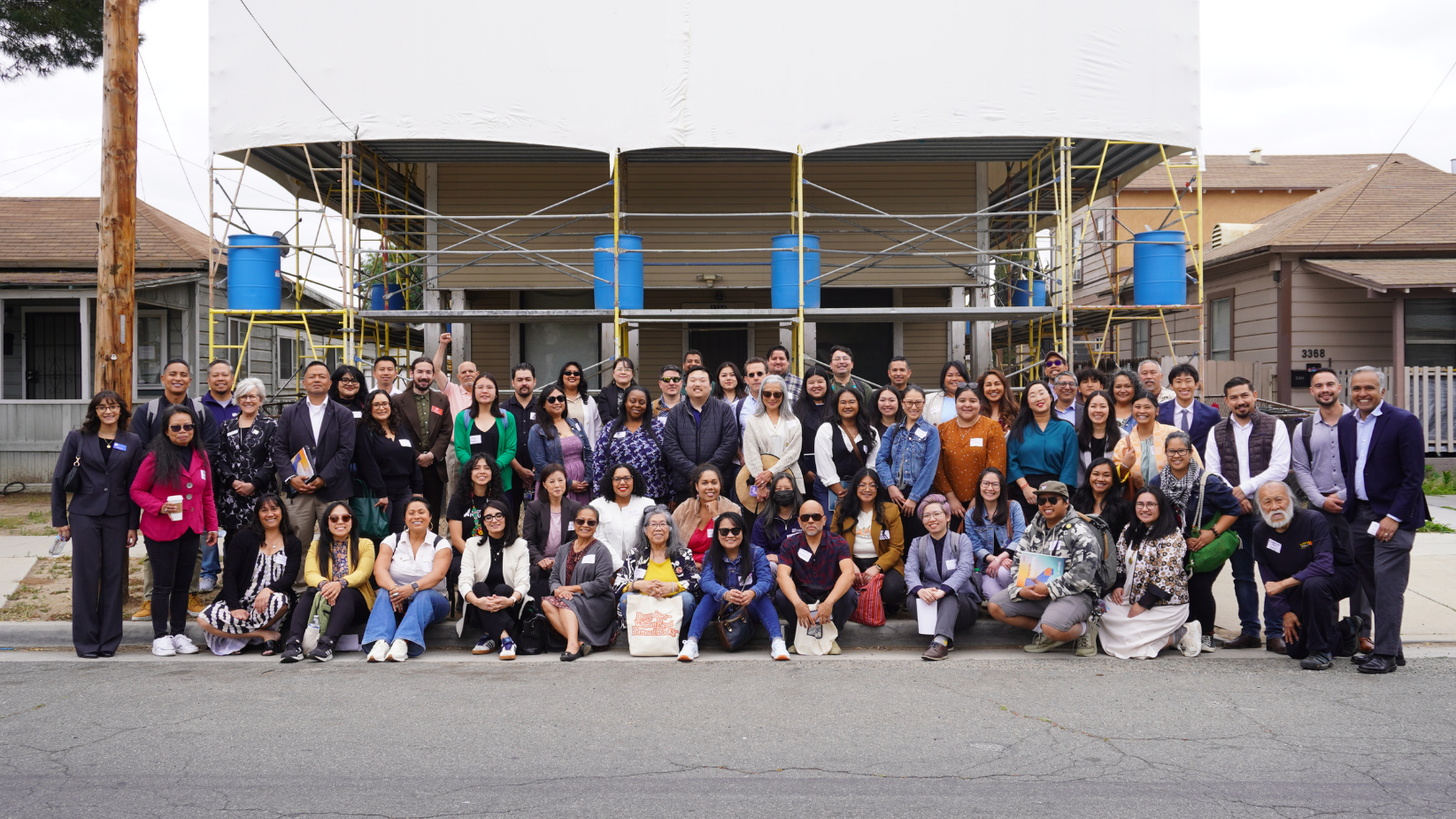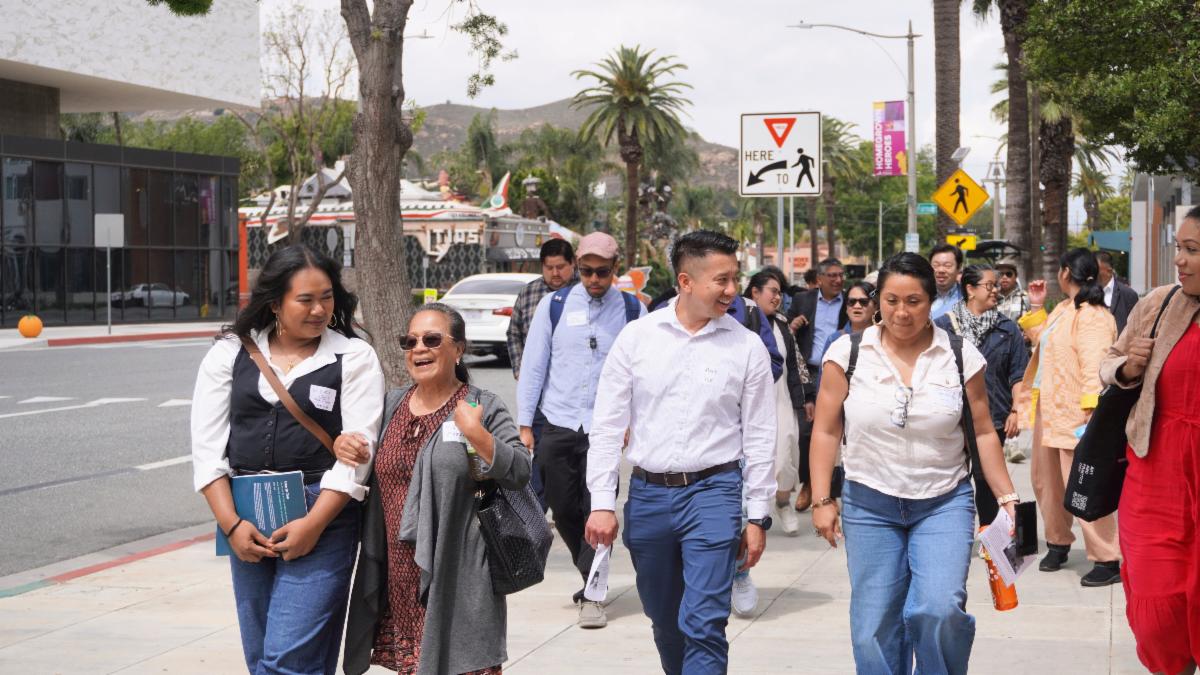In the News
Media Inquiries
If you are a member of the media and are requesting information, please email our Manager of Communications & External Affairs at Yee.Xiong@capiaa.ca.gov
Press Releases & Statements

California AAPI Leaders Forge Path Towards Inclusive Economic Growth at Inaugural Economic Policy Summit

California AAPI Leaders Forge Path Towards Inclusive Economic Growth at Inaugural Economic Policy Summit
The Sacramento, California – The California Commission on Asian and Pacific Islander American Affairs (CAPIAA) brought together policymakers, entrepreneurs, and community leaders for its inaugural AAPI Economic Policy Summit on October 10, 2025, in San Diego.

As California navigates global trade shifts and technological transformation, the summit focuses on the Asian American and Pacific Islander (AAPI) communities, which are not only participating in the state’s economy but also leading it forward.
Since its establishment, CAPIAA has worked to bridge the gap between California’s diverse AAPI communities and state leadership, turning community voices into actionable policy. Under the theme “California Grown, Globally Known,” over 170 participants engaged in conversations about innovation and creating opportunities that benefit AAPI Californians.

Throughout the day, CAPIAA Commissioners led critical discussions, moderated panels, and ensured diverse voices from across California’s AAPI communities were heard and centered.
“California’s strength lies in how we grow together,” said Jason Paguio, CAPIAA Chair. “Our AAPI communities are driving innovation and shaping the global story of California, from small businesses to cutting-edge technology. This summit is a pivotal moment for us to lay the groundwork for inclusive policies and dynamic partnerships that will shape our future.”
The summit tackled the real challenges and opportunities facing AAPI communities, such as the global trade and Pacific partnerships, AI for good, small business resilience, and international events that strengthen California’s economic impact globally.
“The ideas shared at the summit will inform our ongoing work with state agencies and policymakers,” said Khydeeja Alam, CAPIAA Executive Director. “When we invest in the AAPI community, we are investing in an economy that works for all Californians.”
This summit brought together AAPI leaders from all sectors, uniting them not just to explore challenges but to actively create solutions. It was a dynamic gathering focused on collaboration and innovation. CAPIAA is committed to facilitating ongoing discussions with AAPI entrepreneurs and small business owners to better understand the opportunities available to us and to effectively serve our statewide community.
The California Commission on Asian and Pacific Islander American Affairs (CAPIAA) is a state agency dedicated to elevating the political, economic, and social issues of Asian Americans and Pacific Islanders. CAPIAA advises the Governor, Legislature, other state agencies and departments on issues relating to APIA communities, and works to foster understanding, inclusivity, and collaboration across the state. Learn more at capiaa.ca.gov.
The California Commission on Asian and Pacific Islander American Affairs is a state agency dedicated to elevating the political, economic, and social issues of Asian Americans, Native Hawaiians and Pacific Islanders. CAPIAA advises the Governor, Legislature, other state agencies, and departments on issues relating to AANHPI communities and works to foster understanding, inclusivity, and collaboration across the state. Learn more at capiaa.ca.govopens in a new windowopens in a new window.
The California Asian Pacific Islander Legislative Caucus represents and advocates for the interests of the diverse API communities throughout California. It seeks to increase Asian Pacific Islander participation and representation in all levels of government. Learn more at aapilegcaucus.legislature.ca.gov.

CAPIAA, AAPILC and APAHE Condemns Federal Administration’s Decision to Eliminate Critical Funding for Minority-Serving Institutions

CAPIAA, AAPILC and APAHE Condemns Federal Administration’s Decision to Eliminate Critical Funding for Minority-Serving Institutions
The California Asian American & Pacific Islander Legislative Caucus, in partnership with the California Commission on Asian and Pacific Islander American Affairs (CAPIAA) and Asian Pacific Americans in Higher Education (APAHE), condemns the federal administration’s decision to eliminate critical funding for Minority-Serving Institutions. This harmful action by the Trump administration undermines the mission of these institutions, which are dedicated to expanding opportunity, fostering success, and contributing to the strength of our society.
This decision is short-sighted, unjust, and strikes at the foundation of inclusion and access in education. Eliminating this funding will jeopardize vital programs that support minority communities, hinder research efforts, and weaken institutions to change their curriculum to meet the needs of students. Among those affected are the 55 Asian American and Native American Pacific Islander-Serving Institutions (AANAPISIs) nationwide, which play a crucial role in empowering AAPI students. More than $19 million in grants to California community colleges designated as AANAPISIs will be impacted by this detrimental decision. AANAPISIs in California also include several institutions from the California State University and University of California systems, with impacts that are far reaching. Limiting access to higher education and job skills training not only harms students, but also jeopardizes the long-term economic and social health of California.
The AAPI Legislative Caucus, in partnership with CAPIAA and APAHE, stands firmly with students, educators, and institutions. We will continue to advocate for equitable policies that protect and uplift all students. The power and promise of higher education, here in California and across the country, must remain accessible to every student, now and for generations to come.
The California Commission on Asian and Pacific Islander American Affairs is a state agency dedicated to elevating the political, economic, and social issues of Asian Americans, Native Hawaiians and Pacific Islanders. CAPIAA advises the Governor, Legislature, other state agencies, and departments on issues relating to AANHPI communities and works to foster understanding, inclusivity, and collaboration across the state. Learn more at capiaa.ca.gov.
opens in a new windo\
The California Asian Pacific Islander Legislative Caucus represents and advocates for the interests of the diverse API communities throughout California. It seeks to increase Asian Pacific Islander participation and representation in all levels of government. Learn more at aapilegcaucus.legislature.ca.gov.

CAPIAA Stands with Our Immigrant Communities.

CAPIAA Stands with Our Immigrant Communities
- California DOJ Immigrant Rights:
- Legal hotline: (800) 952‑5225Website: oag.ca.gov/immigrant
- California Courts Self-Help Guide: selfhelp.courts.ca.gov/immigration
- California Department of Social Services Immigration Services Bureau: cdss.ca.gov/inforesources/immigration
- California Immigrant Guide: immigrantguide.ca.gov
- LA County Office of Immigrant Affairs: oia.lacounty.gov
- Legal Aid Foundation of LA: lafla.org
- AJSOCAL: Asian Americans Advancing Justice SoCal: ajsocal.org/immigration
- CHIRLA: chirla.org
- Immigrants are Los Angeles: immigrantsarela.com/knowyourrights
The California Commission on Asian and Pacific Islander American Affairs (CAPIAA) is a state agency dedicated to elevating the political, economic, and social issues of Asian Americans, Native Hawaiians and Pacific Islanders. CAPIAA advises the Governor, Legislature, other state agencies, and departments on issues relating to AANHPI communities and works to foster understanding, inclusivity, and collaboration across the state. Learn more at capiaa.ca.gov. Learn more at capiaa.ca.gov.

A Tool for Change: 2025 Fact Sheet on California’s AANHPI Communities
A Tool for Change: 2025 Fact Sheet on California’s AANHPI Communities


A Tool for Change: 2025 Fact Sheet on California’s AANHPI Communities
Sacramento, CA – Released by the California Commission on Asian and Pacific Islander American Affairs (CAPIAA) and AAPI Data, the 2025 Fact Sheet: AANHPIs in California encourages policymakers and leaders across government, education, and community organizations to utilize this fact sheet as a tool in better serving and addressing the issues of the diverse Asian American, Native Hawaiian and Pacific Islander (AANHPI) communities. This fact sheet, drawing on AAPI Data’s Community Data Explorer, provides a comprehensive view of AANHPI ethnic groups and their populations by county, voting eligibility, language accessibility, educational attainment, and poverty rate. This release builds on CAPIAA and AAPI Data’s shared goals: prioritize disaggregated data, uplift community stories, and inform inclusive public policy. The fact sheet was also central to a timely May 19 panel “2026 Governor’s Race & the Asian Pacific Islander Community” co-hosted by CAPIAA and the UC Student & Policy Center which brought leaders and experts, including executive directors Khydeeja Alam and Dr. Karthick Ramakrishnan, California State Assemblymember Mike Fong, and Chief Justice and PPIC President Tani Cantil-Sakauye who emphasized the importance of an informed AANHPI electorate, evidence-based policymaking, and sustained civic participation. “To create meaningful systems change, we must see ourselves reflected in data,” said Khydeeja Alam, CAPIAA Executive Director. “Disaggregated data is integral to serving the diverse AANHPI communities in our state and creating more equitable policies and access to resources.” California is now home to over 7.3 million AANHPIs, with over 25% growth in the last decade, making it one of the fastest-growing racial groups in the state. “Given the fast growth and dynamism of AANHPIs in California, it is essential to have a timely and accurate understanding of our community,” said Dr. Karthick Ramakrishnan, AAPI Data Executive Director and Founder. “Having this disaggregated data is an important step towards ensuring that our fast-growing communities are accurately represented.” As the AANHPI population increases, so must the systems that serve them. Local and state agencies, educational institutions, and community organizations must utilize up-to-date disaggregated data to effectively serve the AANHPI communities in California. That starts with understanding the AANHPI communities.
About CAPIAA The California Commission on Asian and Pacific Islander American Affairs (CAPIAA) is a state agency dedicated to elevating the political, economic, and social issues of Asian Americans, Native Hawaiians and Pacific Islanders. CAPIAA advises the Governor, Legislature, other state agencies, and departments on issues relating to AANHPI communities and works to foster understanding, inclusivity, and collaboration across the state. Learn more at capiaa.ca.gov.
About AAPI Data AAPI Data is a national research and policy organization producing accurate data to support community narratives that drive action toward enduring solutions for Asian American, Native Hawaiian and Pacific Islander (AANHPI) communities. AAPI Data is based at the Asian American Research Center at the University of California Berkeley. Learn more at aapidata.com.

One in Ten: Call to Invest in AANHPI’s Future


One in Ten: A Call to Invest in AANHPI's Future in the Inland Empire
Riverside, CA and Sacramento, CA – Recently released by the California Commission on Asian and Pacific Islander American Affairs (CAPIAA) and AAPI Data, One in Ten: The State of Asian Americans, Native Hawaiians, and Pacific Islanders in the Inland Empire highlights a powerful case for investment in the Asian American, Native Hawaiian, and Pacific Islander (AANHPI) communities. The #OneInTen report was made possible with support from the James Irvine Foundation, and its community launch was additionally supported by the California Endowment and the Inland Empire Community Foundation (IECF). The launch convening brought together nonprofit leaders, researchers, and funders to amplify findings and shape the region’s priorities. Building on this momentum, IECF announced the launch of its AANHPI Fund. This is an early, pivotal step and a call towards investing in the region’s growing AANHPI community.

This report is the first comprehensive and disaggregated study of Asian American, Native Hawaiian, and Pacific Islander populations in the Inland Empire, one of California’s fastest-growing and most demographically diverse regions.
“This is not just about a report, it is about convening regional leaders, spotlighting lived experiences from those in the Inland Empire, and planting the seeds for transformation that begins at the local level,” said Khydeeja Alam, Executive Director of CAPIAA. “What you see in the report is a testament to our rising communities, putting real stories and faces behind data.”
At its core, the report calls for visibility, investment, and recognition of AANHPI communities as essential to the future of the Inland Empire and across the state.
“AANHPIs remain underrepresented in critical discussions about economic opportunity, political leadership, and equitable access to resources,” said Dr. Karthick Ramakrishnan, Executive Director and Founder of AAPI Data. “This milestone report ensures our communities are no longer overlooked. It puts research and disaggregated data behind the demand for meaningful inclusion.”
Local leaders echoed the urgency of these findings, emphasizing the contributions of the AANHPI communities and the need for long-term investment that the report calls for.

“As the first Asian American Mayor in both the City of San Bernardino and San Bernardino County, I’m proud to represent a region that reflects the growing diversity of our state,” said San Bernardino Mayor Helen Tran. “The Inland Empire’s AANHPI communities have long contributed to our region’s cultural, civic, and economic life. This report is an important step in recognizing those contributions and investing in our future.”
The report shares how fast the AANHPI community is growing and what challenges they face:
- Demographic Growth: AANHPI populations have more than doubled over the past two decades. Filipino Americans are the largest subgroup, followed by Chinese, Vietnamese, Indian, Korean, and Pacific Islander communities.
- Public Health Disparities: Native Hawaiian and Pacific Islander residents in San Bernardino County experienced the highest COVID-19 death rates in California, more than double the statewide average.
- Economic Contributions: AANHPIs play vital roles in healthcare, logistics, and small business sectors that keep the Inland Empire running.
- Resource Gaps: AANHPI-serving organizations operate with limited capacity due to persistent underinvestment, despite growing demand for culturally relevant services.

Community leaders and advocates shared powerful testimonials that brought these issues to life by sharing how the report’s themes connect to their own lives and work and demanding representation and investment.
“As a new resident, it’s inspiring to see this kind of visibility and momentum,” said Abigail Pidazo from Perris Valley. “It expands Filipino representation beyond established circles and brings in voices across generations.”
“We don’t just want to be represented by flags,” said Lolofi Soakai of MALO. “We want to be in powerful spaces, part of the conversation. We have more to offer and we deserve a seat at the table.”
“People often overlook the Inland Empire,” said Malek Bendelhoum of Sahaba Initiative. “But for those of us who live and work here, we know the truth: the work never stops. We show up, we get the work done, no matter what. That’s what defines the IE. Just imagine what’s possible when real investment meets that commitment.”
That commitment is now being met with action. The announcement of the AANHPI Fund comes when the Inland Empire’s AANHPI communities need it the most. The AANHPI Fund is a philanthropic initiative led by the Inland Empire Community Foundation designed to drive strategic investment in local communities.

“The launch of the new AANHPI Fund marks a turning point,” said Benjamin Naté of the Inland Empire Community Foundation. “By combining data, community vision, and advisory leadership, we’re setting the tone for the Inland Empire’s future.”

About CAPIAA
The California Commission on Asian and Pacific Islander American Affairs (CAPIAA) is a state agency dedicated to elevating the political, economic, and social issues of Asian Americans, Native Hawaiians, and Pacific Islanders. CAPIAA advises the Governor, Legislature, other state agencies, and departments on issues relating to AANHPI communities and works to foster understanding, inclusivity, and collaboration across the state. Learn more at capiaa.ca.gov.
About AAPI Data
AAPI Data is a national research and policy organization producing accurate data to support community narratives that drive action toward enduring solutions for Asian American, Native Hawaiian and Pacific Islander (AANHPI) communities. Learn more at aapidata.com
Subscribe to Our Mailing List!
Keep in touch with the latest news & updates from the California Commission on Asian and Pacific Islander Affairs!
